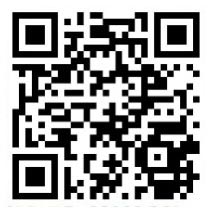雅思听力精品材料:中美儿童学习新科技_雅思听力
今天北京爱思学雅思培训小编为大家带来的雅思听力精品材料是关于:“中美儿童学习新科技”的双语新闻,那么中美儿童学习新科技有什么不同呢?下面和雅思小编一起来听听吧:
【音频加载有点慢,请大家耐心等待~点击播放哦!】
Scientists and educators in U.S. and China say it pays to introduce very young children to new technologies - from computer programing to designing electronic circuits. With the right approach, they say, children learn not to be intimidated by abstract thinking.
中美两国的科学家以及教育家们说,向低龄儿童介绍电脑编程、电子电路设计等新技术是一件很有意义的事。他们说,如果采用正确的方法,孩子们能在学习中培养抽象思维。
Even before they learn to read and write, children can manipulate images. Tablet computers with touch-sensitive screens are ideal for lining up simple commands, which is exactly what programing is all about, said Mitchel Resnick, co-developer of a code-learning program called Scratch Jr.
在学习读写之前,儿童们就已经能够处理图像了。一个叫作Scratch Jr的编程学习程序的联合开发者、麻省理工学院的米切尔∙瑞斯尼克(Mitchel Resnick)说,带有触摸屏的平板电脑很适合排列简单的指令,这正是编程所做的事。
“Each block tells the character what to do. You snap the blocks together, and you've made a computer program," he said. "Each block has a different behavior. This block makes the cat go to the right. This one makes the cat jump. By snapping them together I make a computer program that makes it move and then jump. That's what coding is all about, putting together sequences of actions."
他说,“每一个小图块儿告诉角色要做什么,你把这些小图块儿拼到一起,你就编了个电脑程序出来。每一个小图块儿都代表着不同的行为。这个图块儿让这只猫走到右边去。这个图块儿让猫跳起来。通过把它们拼接起来,我就编出了一个程序能够让这个猫先走后跳。把一串动作组合在一起,这就是编程。”
“It's pretty fun because, you can do, like, almost anything on it,” said seven-year-old Talia Levitt.
7岁的塔里亚∙莱维特玩得很开心。他说,“这很有趣,因为你几乎可以在这上面做任何事情。”
It is up to parents to decide how much time their children spend exposed to modern technology. But, as Sandra Calvert, Director of Children's Digital Media Center at Georgetown University, notes, it's all around us.
孩子们在现代科技上花多长时间,这是由家长决定的。但是,正如乔治城大学儿童数字媒体中心主任桑德拉·卡尔弗特指出的那样,现代科技是无处不在的。
"We live in the digital age," she said. "Just as it's a worry that there may be too much screen time, there is also a concern that our children will be left behind if they don't know how to use the technologies that are going to shape 21st century careers, jobs and how we are going to succeed as a nation.”
她说,“我们生活在数字时代。我们一边担心我们花在屏幕上的时间太多,一边也要担心如果我们的孩子不知道如何使用科技他们会落后,因为这些科技将塑造21世纪,影响我们的职业、工作以及我们作为一个要如何取得成功。”
At so-called “maker spaces” in Beijing, children between four and 15 also use tools and machines, such as 3-D printers, to create various projects. They are part of the so-called “maker movement” that started in the U.S. but quickly spread to other countries, connecting people who like to make things with their hands.
在北京的这个名叫“创客空间”的地方,4到15岁的孩子也在使用像3D打印机这样的工具和机器来创造各种项目。这是所谓“创客运动”的一部分。“创客运动”发源于美国并很快扩散到其他,它将那些喜欢亲手制造东西的人们联系了起来。
One of the movements’ pioneers, Wang Shenglin, said the trend appeals to the younger generation.
很早就接触到“创客运动”的王盛林说,这股潮流吸引了更年轻的一代。
“The old generation is like: ‘in the morning, we go to work.’ The young generation, we see them, they start trying, trying so hard to do what they love. I think that is the difference,” he said.
“老一代人就好像是说,到了早晨,就去工作。但是我们看到,年轻的一代开始努力地尝试做他们爱好的事情。我觉得这就是不同。”
It goes against tradition in China not to follow the crowd, but young entrepreneurs like 24-year-old Huang Weijie want to change things.
不随大流,这与中国的传统是相悖的,但是像24岁的黄伟杰(音译)这样的年轻创业者们总想要改变些什么。
“Our generation thinks that we really need to do something we like in order to innovate," he said. "To us, we are as capable as foreigners. Why they can do something and we could not?”
他说,“我们这一代人觉得我们需要做些我们喜欢的事情,这样才能有创新。对我们来说,我们在能力上也不输给外国人,为什么他们能够做到,我们做不到呢?”
Huang said Chinese will have to learn that although opening a private business includes the possibility of failure, his generation will have wider experience of the world, so they will be prepared to make mistakes and learn from them.
黄伟杰说,中国人需要知道,尽管开公司存在失败的风险,但是他们这一代人具有更广泛的国际经验,所以他们将做好犯错误并从错误中吸取教训的准备。












